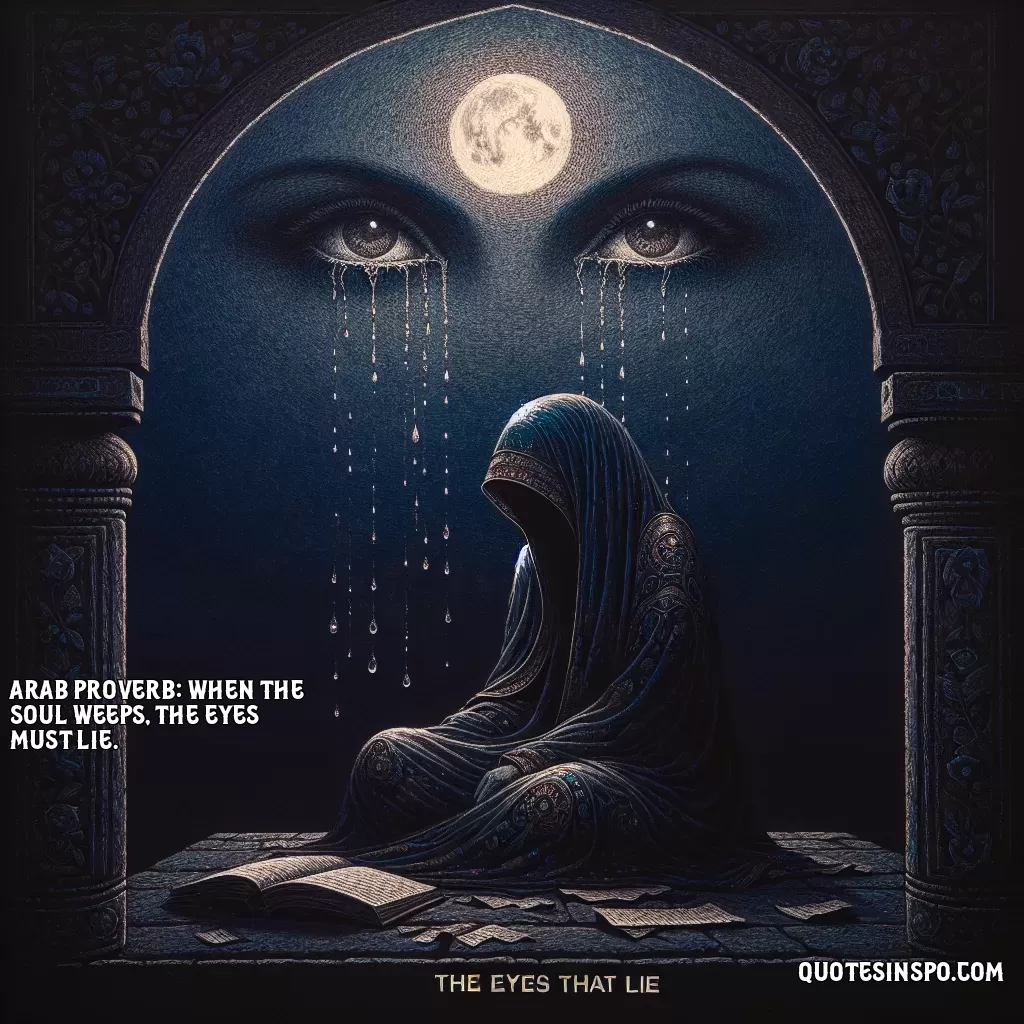
Arab Proverb: When the soul weeps, the eyes must lie.
The Arab proverb "When the soul weeps, the eyes must lie" speaks to the complicated relationship between our internal emotions and the outward expressions that we allow others to see. It suggests that there are instances when deep, personal sorrow is felt within, yet the individual chooses to present a different emotion externally. This dichotomy between inner truth and outer expression can be understood in several contexts. Firstly, it highlights the human tendency to mask their true feelings, especially in cultures or situations where displaying vulnerability is perceived as a weakness. In many societies, there is a significant pressure to maintain a facade of strength or contentment, even when experiencing profound grief or sadness. This proverb signifies the internal struggle where one's soul is heavy with emotion, but societal expectations or personal pride compel them to present a different image to the world. Additionally, the proverb hints at the complexity and depth of human emotions, recognizing that true feelings are not always easily expressed or visible to others. The eyes, which are often considered windows to the soul, may be misleading, either by choice or necessity, because they project what is socially acceptable or expected rather than what is genuinely felt. Moreover, the proverb can also serve as a reminder that empathy and understanding for others require deeper insight. Just because someone's eyes do not show tears does not mean their soul is not in pain. It encourages a deeper engagement with those around us, urging us to look beyond superficial expressions to truly understand and support one another. Ultimately, "When the soul weeps, the eyes must lie" reflects the essence of human experience, where inner emotions often collide with the outward persona, and how this dissonance is a part of existing within societal norms and personal boundaries.
Quote By: Unknown
"Unknown" is a term used to describe individuals, places, or concepts that lack a defined identity or recognition. Often used in storytelling and discussions, "Unknown" can represent the mystery and intrigue surrounding uncharted territories, unwritten histories, or undisclosed truths. In a broader sense, it embodies the human fascination with exploration and the quest for knowledge about what lies beyond our current understanding.
Bio added on: 2025-02-17 01:36:46